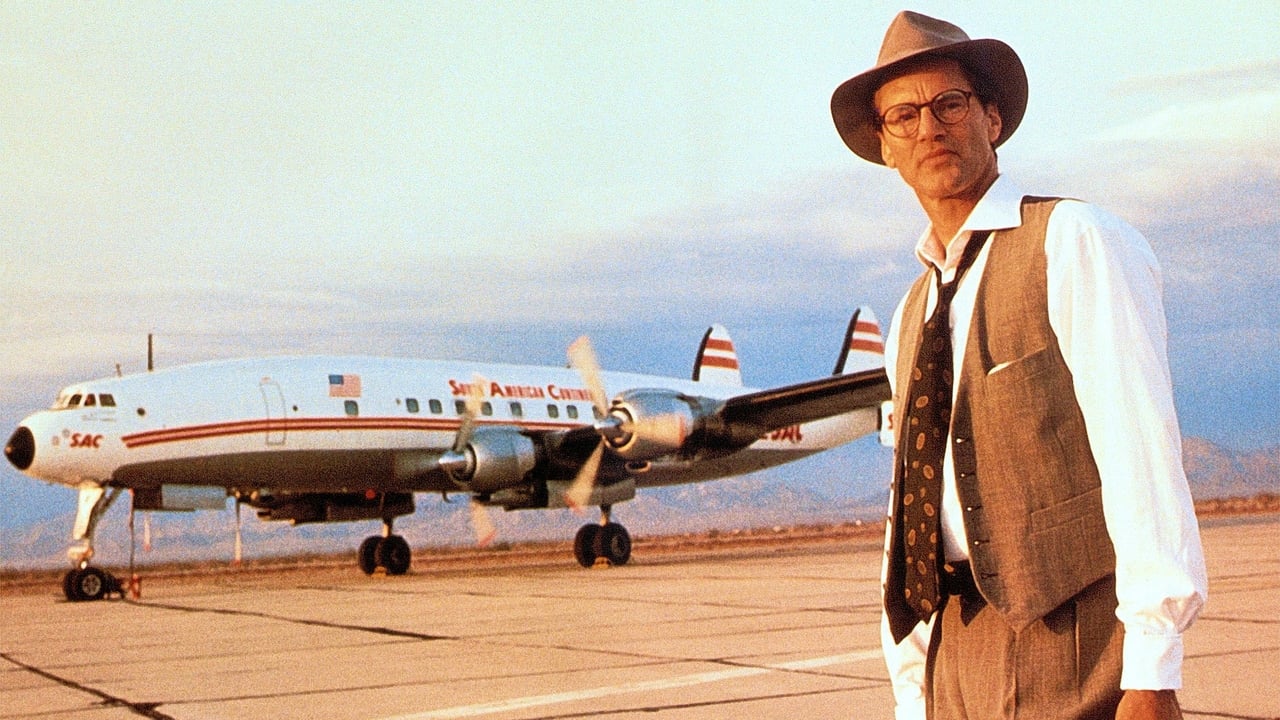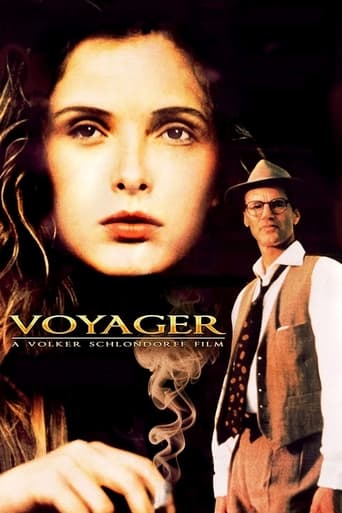

Wonderful character development!
... View MoreToo much about the plot just didn't add up, the writing was bad, some of the scenes were cringey and awkward,
... View MoreIf you like to be scared, if you like to laugh, and if you like to learn a thing or two at the movies, this absolutely cannot be missed.
... View MoreStrong acting helps the film overcome an uncertain premise and create characters that hold our attention absolutely.
... View More"Homo Faber" is a German movie from 1991 directed by Oscar winner Volker Schlöndorff, but this time he did not write it, but let Rudy Wurllitzer do the adapting of Max Frisch' novel. Schlöndorff's most known movie are all based on works from famous authors and this one here is no exception. The cast includes Oscar nominee Sam Shepherd, who looks like taken right out of a Hitchcock or film noir movie, Julie Delpy, probably the most stunning, most natural and most beautiful actress out there in the early 90s and Barbara Sukowa, who is a really weak actress usually with her constant overacting, but bearable in here, even if the European Film Award nomination is an utter joke.The story is about a man, who on a business trip falls in love with a much younger woman. After some initial struggles about how (even if) a relationship may work out, the two are truly happy, but luck may not be on the protagonist's side this time after early on he survives a plane crash without any injuries. He seems to be very cold and calculating, but when he meets Delpy's character, he offers us and his love a totally new side, emotional and caring until the ghosts from his past come back to haunt him. Won't go any further into detail to avoid major spoilers, but this was such an unrealistic development, but I guess Frisch had it in his base material, so they had to include it here too. Also everything before he meets Delpy's character is fairly forgettable to me and I could have done without it, even if the film may not have crossed the 90-minute mark this way. Overall, despite occasional criticisms, I thought this was a really good watch for the most part and I can definitely recommend checking this one out. Oh yeah, you may also find it under the title "Voyager".
... View MoreSchloendorff at his worst. All his movies are badly acted, awfully staged and directed, but this adaptation of Max Frisch's fabulous classic novel is just ... I can't even tell you HOW bad it was!! Schloendorf didn't understand the novel at all, he seemed to be more than confused, and the actors! Poor Sam Shepard, poor Julie Delpy! Schloendorff hunts them through various (admittedly lovely) locations, lets them talk a lot and loses the paths of the author too often. This movie is no entertainment, it's not thought-provoking, it's just an assault on good taste. The only good thing about this movie is the title song sung by Ute Lemper, the jazz standard "Careless Love Blues". But for that it might suffice to buy the soundtrack. My, this movie is awful!
... View MoreThe first (and last) images of this film really interested me. At the risk of spoiling, we find Faber sitting alone in a Greek airport trying to figure out what the hell just happened to him. A really depressing scene that draws you in to his web of coincidence that is the rest of the story. Faber is a man of science that really should have a great life(he is the chief engineer on an important dam project), but his past catches up with him with a series of coincidences that play a terrible joke with his life.Delpy is very sexy and very French. The aircraft that crashes is just as sexy. A romp around Europe rounds this great film out. Watch with your wife or girlfriend with wine - not with the guys and beer!
... View MoreI give Homo Faber 5/5, it captivates from the start. The movie is set in some beautiful places namely (France, Germany, South America and Italian countryside)which does justice to its aka title "Voyager." A carefully structured plot which unravels beautifully with a touch of adventure,nostalgia and mystique. Sam Shepard really shines in this role. The rest of the cast is up to the job.
... View More